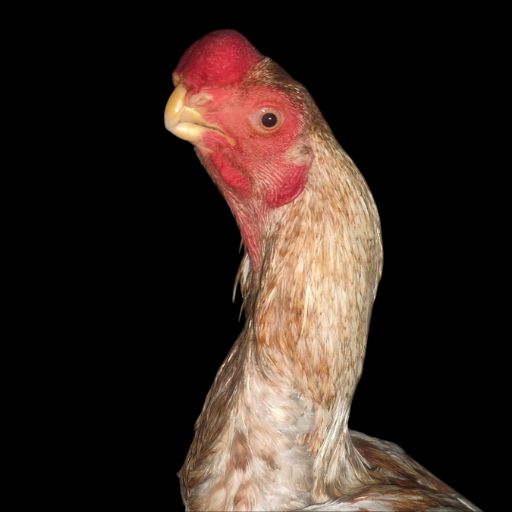Your cart is currently empty!
How to Prevent Nerve Issues in Roosters
·

Introduction
Roosters play a vital role in maintaining a balanced flock, ensuring breeding, and protecting hens. However, nerve-related issues can affect their mobility, coordination, and overall health, leading to significant problems. Preventing nerve damage requires proper nutrition, management, and disease control. This article explores effective ways to prevent nerve issues in roosters, helping maintain their strength, vitality, and well-being.
1. Providing Proper Nutrition
A balanced diet is essential for nerve function and muscle coordination in roosters. Nutritional deficiencies can lead to weakness, paralysis, and tremors.
Key Nutrients for Nerve Health
- Vitamin B Complex: Essential for nerve regeneration and muscle coordination.
- Sources: Brewer’s yeast, sunflower seeds, leafy greens.
- Vitamin E & Selenium: Prevents oxidative stress, which can damage nerves.
- Sources: Wheat germ, eggs, fish meal, and fortified feeds.
- Calcium & Magnesium: Supports nerve signaling and muscle contraction.
- Sources: Crushed oyster shells, bone meal, dairy products.
- Amino Acids (Methionine & Lysine): Helps maintain muscle strength and nerve function.
- Sources: Soybean meal, fish meal, and corn.
Avoiding Nutrient Deficiencies
- Use high-quality commercial poultry feed rich in essential vitamins and minerals.
- Supplement with natural sources of nutrients to improve absorption.
- Provide multivitamin supplements during stressful conditions (e.g., molting, transportation).
2. Disease Prevention and Control
Several diseases can cause nerve-related disorders in roosters. Prevention through vaccination, biosecurity, and regular health monitoring is crucial.
Common Diseases Affecting the Nervous System
- Marek’s Disease: A viral infection causing paralysis and neurological disorders.
- Prevention: Vaccinate chicks at one day old, maintain hygiene, and separate infected birds.
- Newcastle Disease: Affects the brain, causing tremors and incoordination.
- Prevention: Vaccination, strict biosecurity, and avoiding contact with infected flocks.
- Botulism: Caused by consuming spoiled feed or water contaminated with toxins.
- Prevention: Keep feed and water clean, dispose of dead animals promptly.
- Avian Encephalomyelitis: Affects young birds, causing tremors and leg weakness.
- Prevention: Vaccinate breeding hens to pass immunity to chicks.
Biosecurity Measures
- Quarantine new birds before introducing them to the flock.
- Keep housing clean and free from mold, dampness, and rodents.
- Avoid using the same equipment for multiple flocks without disinfection.
3. Managing Stress and Injury Prevention
Stress and injuries are major contributors to nerve problems in roosters. Proper handling and environment management can reduce risks.
Reducing Stress
- Minimize overcrowding to prevent fights and injuries.
- Provide perches to keep roosters active and improve leg strength.
- Maintain a consistent routine for feeding and care.
- Avoid sudden loud noises and excessive human handling.
Preventing Injuries
- Keep sharp objects and rough surfaces out of the coop.
- Trim long spurs carefully to prevent leg injuries.
- Avoid placing heavy objects where they may fall and injure birds.
4. Ensuring Proper Exercise and Roaming Space
Lack of exercise weakens muscles and nerves, making roosters more susceptible to neurological issues.
Encouraging Natural Movement
- Provide sufficient space for roosters to move freely.
- Allow free-ranging when possible to improve muscle and bone strength.
- Introduce perches, ladders, and platforms to promote jumping and wing exercise.
Preventing Obesity
- Overweight roosters may develop nerve compression issues.
- Avoid overfeeding with high-carb treats like corn and bread.
- Feed a well-balanced diet with a controlled amount of protein and fat.
5. Treating Early Symptoms of Nerve Issues
Early intervention can prevent permanent damage if nerve issues are detected.
Signs of Nerve Problems
- Weak legs, limping, or dragging feet.
- Shaky head movements or tremors.
- Lack of coordination and trouble perching.
- Paralysis or sudden inability to stand.
Immediate Actions
- Isolate affected birds to prevent further stress.
- Provide B-complex and Vitamin E supplements for nerve regeneration.
- Keep the bird hydrated and offer easy-to-eat food.
- Seek veterinary assistance if symptoms worsen.
6. Avoiding Toxicity and Chemical Exposure
Certain chemicals and toxins can damage nerves, causing permanent disabilities in roosters.
Common Toxins That Affect the Nervous System
- Pesticides and Herbicides: Avoid spraying chemicals near poultry areas.
- Moldy Feed (Mycotoxins): Store grains properly to prevent fungal contamination.
- Heavy Metals (Lead, Zinc, Copper): Avoid using old, rusty feeders or water pipes.
- Medications (Ivermectin Overdose): Always follow proper dosage guidelines when deworming.
Ensuring a Safe Environment
- Use natural pest control methods like neem extracts.
- Store feed in dry, well-ventilated areas.
- Regularly check and replace feeders to prevent contamination.
Conclusion
Preventing nerve issues in roosters requires a combination of good nutrition, disease control, proper management, and environmental safety. By ensuring a balanced diet, regular vaccinations, injury prevention, and stress reduction, poultry farmers can protect their roosters from debilitating nerve disorders.